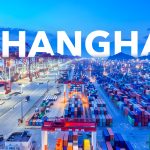Listen to the audio version of the blog here:
Project logistics is the backbone of global mega-projects, moving everything from towering wind turbines to delicate satellite components. This multi-billion-dollar industry is not just about transportation; it’s about ensuring the world’s most ambitious projects come to life. With the growing complexities of geopolitics and the demand for sustainable practices, project logistics is at the centre of transformation. Let’s dive into the trends driving this pivotal industry forward and shaping its future.
1. Geopolitical Influences on Investments
Political changes, trade wars, and tariffs are reshaping investment flows and project logistics. Freight rates are sensitive to these dynamics, forcing businesses to adapt their strategies quickly. Companies are employing strategies such as diversifying supply chains to source materials from multiple regions, renegotiating contracts with logistics providers to lock in more stable rates, and leveraging predictive analytics to anticipate market fluctuations and plan accordingly. For instance, sudden tariff increases can significantly affect transportation costs, requiring agile solutions to stay on track.
2. Diversification in Energy Portfolios
As renewable energy projects face scaling challenges, nuclear energy is making a comeback. Transporting nuclear components demands meticulous planning and adherence to strict safety protocols, adding complexity to logistics operations. For example, the transportation of reactor pressure vessels for nuclear power plants often requires custom-built transport equipment, secure convoy escorts, and detailed route planning to navigate through urban areas or sensitive environments without compromising safety or deadlines.
3. Growing Defence Projects
With defence budgets at an all-time high, the logistics sector is tasked with transporting oversized, sensitive equipment like tanks and jets. These projects demand top-tier security, reliability and precise planning to meet time-sensitive goals.
4. Advances in Technology
Digital twins and simulation tools are revolutionising logistics by enabling companies to rehearse transportation processes virtually, reducing risks and costs. A digital twin is a virtual replica of a physical process, system, or asset that allows for testing and optimisation in a simulated environment before real-world execution. Additionally, technologies like AI, IoT, and blockchain enhance transparency and predictive capabilities, ensuring smooth operations.
5. Emphasis on Sustainability
Environmental concerns are pushing logistics providers towards greener practices, such as using alternative fuels, optimising routes, and adopting circular economy principles. After all, a greener planet means smoother operations and happier clients. This shift underscores the growing importance of aligning logistics with environmental stewardship. Companies prioritising sustainability aren’t just saving the planet, they’re gaining a competitive edge in an increasingly eco-conscious market.
6. Infrastructure Modernisation
Investments in modern logistics parks and multimodal hubs are transforming the logistics landscape by integrating multiple transportation modes, streamlining operations, reducing transfer times and significantly cutting costs.
The future of project logistics is defined by adaptability, precision, and sustainability. Geopolitical shifts call for agile strategies to navigate uncertainties, while advances in technology like digital twins ensure meticulous planning and execution. Simultaneously, sustainability initiatives, such as adopting green fuels and optimising logistics practices, underscore the growing demand for eco-conscious solutions. These trends collectively empower companies to address challenges and meet modern demands head-on. States Vignesh S Kumar, Strategic development & Operations at DahNAY Project Logistics, “Project logistics is where ambition meets execution. We are excited to embrace this transformative journey, pushing boundaries and creating innovative solutions that drive global success.”
Vignesh Kumar Mohan, Commercials & Customer Solutions at DahNAY Project Logistics, adds, “In today’s dynamic environment, staying ahead means combining deep industry insights with customer-centric strategies. This synergy enables us to deliver value-driven, tailor-made solutions for every unique project.



